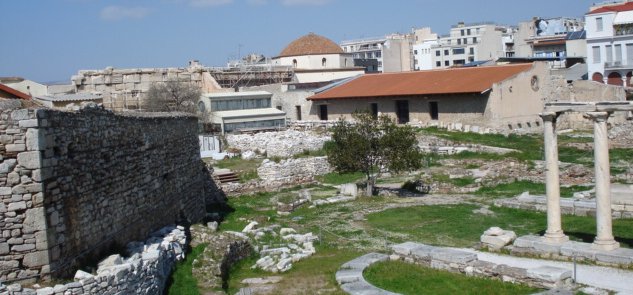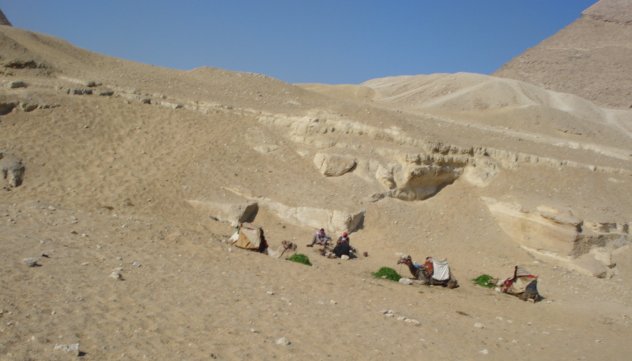People say that like it is a bad thing. In fact, the ability to put a price on most things is the basis of most of our prosperity. It also reduces or even eliminates many conflicts and just makes everything work smoother. A lot of blood has been shed over “priceless” things, but any problem you can buy your way out of is not longer a problem; it is just an expense.

People have a strange way of disparaging thing they want the most and talk obliquely about them. For example, when somebody says, “you cannot put a price on that” he usually means that the price offered is too low. When he says, “Nobody should have to pay for that” he usually means that he wants somebody else to pay for it for him.
Something for Nothing
Everybody likes to get something for nothing (or at least for not too much.) We wince when we think about the venality of some of our interactions, but it is just part of human nature. Actually, it is part of nature in general. Animals implicitly calculate the amount of effort expended for a particular payoff. Lions go after the zebras or wildebeests that are easiest to catch and they chase their prey only so far. After that, it is not worth the effort. And the king of beasts is happiest when he can find a fresh carcass that he doesn’t have to chase at all, i.e. get something for nothing. That’s nature.
What is it Worth?
The most important part of a price is the information it contains. The price tells you whether it is worth the effort. It also tells you how much effort others would put in making or getting this thing. It allows you to compare and make choices about disparate things and forms a judgment on the relative effectiveness of various producers. All this is Econ 101, but it bears repeating since we often forgot why prices are good.
BTW – I have been watching a good show called “Pawn Stars.” I recommend watching that when thinking about the “true price” of anything.
Price’s role in conflict resolution is something we talk about less often but it is one of its most important functions. Price can accomplish so much because it contains all that stuff mentioned in the paragraph above. W/o price, these are things you would have to fight about. To illustrate the role of price in conflict resolution, imagine a situation where two or more people want exactly the same thing and have determined it is priceless. Those are the conditions where people come to blow and nations go to war.
Think of the rare heirloom from grandpa that all the grandchildren want and think is theirs by prior right. They can all come up with endless credible arguments as to why it should be theirs. Put a reasonable price on the thing and the conflict usually drains away, as most of the heirs decide they really didn’t want it that much and/or something else is more valuable to them.
Something Beyond Price, or Just a Price Range
Of course, there are some things we really would not put a price on, but fewer than we like to admit. I am telling the truth when I tell people that I don’t want to sell my forest land, but my statement is valid only within an implicit price range. I am not exactly sure what that range is. I know a price I would accept is currently significantly more than I am likely to be offered, which I why I can make my “not selling” statements with such moral certainty. But I think if someone offered me $1 million an acre, I would take it.
There is joke (I think it is from Groucho Marx) that illustrates the price dilemma: This guy asks a woman if she would sleep with him for $1 million. After a little thought, she says she would. He says, “How about $10?” To which she indignantly replies, “Sir, what do you think I am?” The guy says, “We have established what you are; now we are haggling over the price.”
You Can’t Sell That
It is precisely our human “price flexibility” that makes it necessary to have some laws about things that cannot be sold. No matter what the price, you cannot self yourself into slavery, for example. Society does this not only because slavery is odious or even to protect the person selling, but rather defends the whole concept of freedom and takes it out of the negotiation/price world. I think most people support this kind of limit on choice, but we need to be careful not to go far in proclaiming too many things off limits. Things w/o a price often tend to get abused.
I recently read a series of articles about the art world. Art is one of those places where you have a lot of price confusion. Much of the price is based on fashion and capricious opinion. Artists put a lot of their personality into their works and usually pompously over-value it. And many people get positively indignant about prices that are too high, too low or anything else. But price may be more important in the art world than in many other places. Simply stated: price preserves both art and artists.
Price Preserves Art
One article talked about Chinese art. Now that some Chinese have piles of money and Western currencies to burn, Chinese art has risen in value. Some complain that it was undervalued in the past and that Western collectors were able to buy it up at a fraction of what it was worth. This is a fairly meaningless statement, BTW, because it is worth what somebody will pay for it. Today it is worth more. That’s it. But there is another permutation.
During the bad old days of Mao’s Cultural Revolution, traditional Chinese art was often worse than worthless within China. The Communists made a special effort to denigrate and destroy what they considered symbols of decadence and oppression. Much of the Chinese art now being “repatriated” would have been lost of destroyed had it not been “plundered” by Western collectors at a time when the people on the ground didn’t value it.
Think of the terrible case of the Tailban destroying those giant Buddhas, because they were an offense to their fundamental interpretation of Islam. If the British had “plundered” them, they would still exist.

Unappreciated Ancient Civilizations
The same goes for a lot of the art of ancient Greece, Egypt and Mesopotamia. I know this provokes strong emotions, accusations of insensitivity and even expressions of outrage, but if you look at the historical record, it was British, French and German archeologists who essentially brought the ancient world back to the places where it had been and had been forgotten. The current inhabitants didn’t know much and cared less about the world of antiquity and usually saw archeological sites merely as places to dig up valuables or convenient places to steal bricks or rocks for new construction.
There is a legitimate dispute whether those ancient artifacts now housed in museums in Berlin, Paris, London or New York were plundered or saved. I think it is clear that had those things not been preserved in those museums, most would have ended up lost, part of somebody’s retaining wall or – at best – in some rich guy’s private collection.
Anyway, it is a good thing that these things had a price and that somebody was willing to pay it. The Rosetta stone could have easily become pavement on the road to Cairo, which illustrates another benefit of price. It tends to put things into the hands of those who want or can use them the most. The Rosetta stone was laying around for more than two thousand years and nobody bothered to try a translation until it got into the hands of someone who cared.
